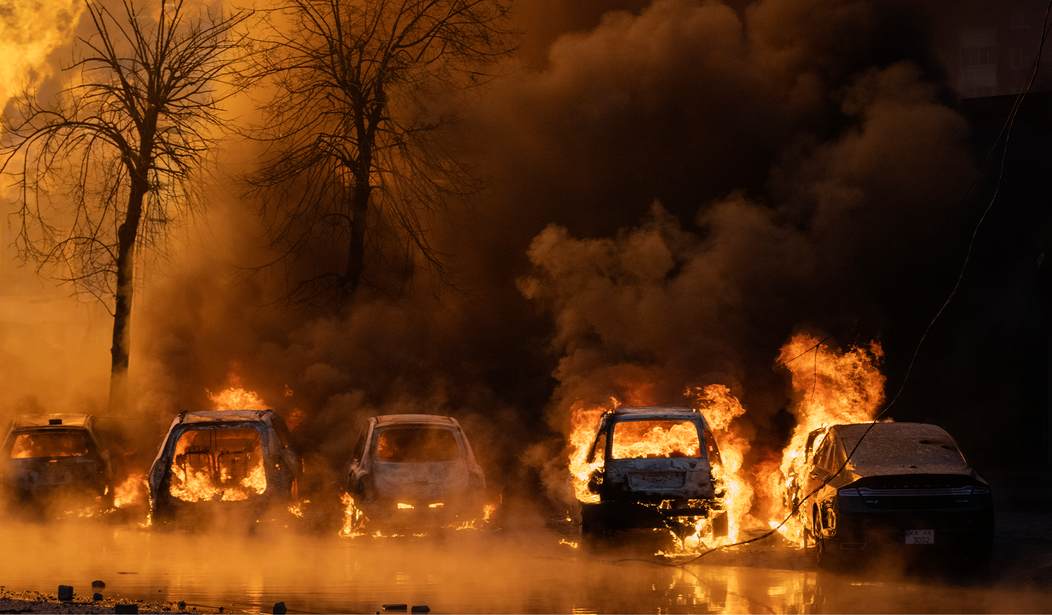The Russians, according to some pundits, are fighting beyond the point of reason in Ukraine. Anne Applebaum writes in the Atlantic: "Kremlin officials are now telegraphing to everyone — to Western politicians and journalists, to Ukraine, to the Russian people — that they can absorb 300,000 casualties and massive equipment losses." This unreasonableness is forcing the Ukrainians and potentially their Western allies to match the Kremlin's grim steps: to move past the splendid volunteerism of the early days to conscription, nonstop production and all the coercive apparatus of total war.
Ukraine needs to recruit and train more soldiers, as well as to give veterans a rest from combat. Fear and paranoia about military service are growing; there are reports of people being pressed into the army and of others trying to sneak across borders and swim across rivers in order to dodge mobilization.
How did we descend into this madness? If this were a movie we would be in the part where each side has driven a spike through the forehead of its opponent, thinking to have delivered the fatal blow. But though each has momentarily staggered, each has plucked out the spike from his head. There's a lot of ruin in nations, not just Ukraine and Russia. For example, both Israel and Hamas have demonstrated their capacity to take more damage than one might think. More even than one can imagine. The capacity of countries to absorb damage has often been underestimated. History abounds with examples of how easy it is to be seduced by one's own theory of victory, which often assumes the foe will be reasonable.
According to conventional thinking, there are two ways to defeat an enemy: Destroy the 1) physical means or 2) the will to fight. In 1941 Japan thought defeating the Pacific fleet would bring U.S. surrender. A series of defeats would "cause the U.S. Navy and the American people to lose their morale to such an extent they will never get it back." In Europe, the object of Barbarossa was merely to reach the Arkhangelsk–Astrakhan line. "The German Wehrmacht assumed that the majority of the Soviet military supplies and the main part of the food and population potential of the Soviet Union existed in the lands that lay to the west of the proposed A-A line. If the line were reached, the Soviet Union would also be deprived of around 86% of its petroleum assets (oil territories in the Caucasus)" and the war with the USSR would be over. In 1812, Napoleon assumed that by taking Moscow the Grand Armee would win the war against the Czar. "On 14 September, Napoleon and his roughly 100,000-strong army took control of Moscow, only to discover it deserted, and set ablaze by its military governor Fyodor Rostopchin. Remaining in Moscow for five weeks, Napoleon awaited a peace proposal that never materialized."
In retrospect, none of these historical plans of defeat could come remotely close to destroying the enemy's physical means to fight. The flawed assumptions of victory in each case were rooted in a flawed estimate of the foe's will to fight. Imperial Japan, Nazi Germany, and Napoleonic France thought their enemy would be reasonable and give up. When they could not break the enemy's will at these pre-imagined points, they had to resort to physical annihilation, which they were incapable of. But the U.S. could wreak such damage and so could the USSR. The actual defeat of historical Japan required an almost inconceivable application of force. The destruction of Germany was on a similar scale.
The Western dilemma in Ukraine is that Putin is unreasonably fighting on because he can, forcing them to follow suit.
Changing political sensibilities and nuclear weapons have now made it nearly impossible to inflict physical annihilation on enemies anymore. For example, many UN members would effectively prohibit Israel's attempts to win its 2023 war against Hamas in Gaza since Hamas will not surrender and the IDF is enjoined from physically destroying them. Hamas could start the war, but Israel cannot end it. This knowledge of this stop-loss rule may have emboldened the Houthis to attack international shipping lanes in the Red Sea, confident that despite the power of the international naval coalition, they would never be allowed to lose.
The effect of repealing the mechanism of physical defeat has been to simultaneously nullify the mechanism of breaking enemy will since, there being no danger of annihilation, there is nothing to be gained by surrender. With belligerents able to defy superior force indefinitely, wars can no longer be won through any path. This means that, today, wars can be started but never decisively ended. In this context, it makes sense to be unreasonable.
It also means that, like any process that can only add but never diminish, the new stop-loss rule will monotonically increase the number of wars. And that is what we actually observe. The UN pointed out that 2023 marked "the highest number of violent conflicts since the Second World War." The Washington Post observed last year that a "historic rise in global conflict deaths suggests a violent new era." This is tragic but not surprising. The wars in Ukraine, Gaza, the Red Sea, and other places will all go on past the point of reason. Reason has got nothing to do with it.










